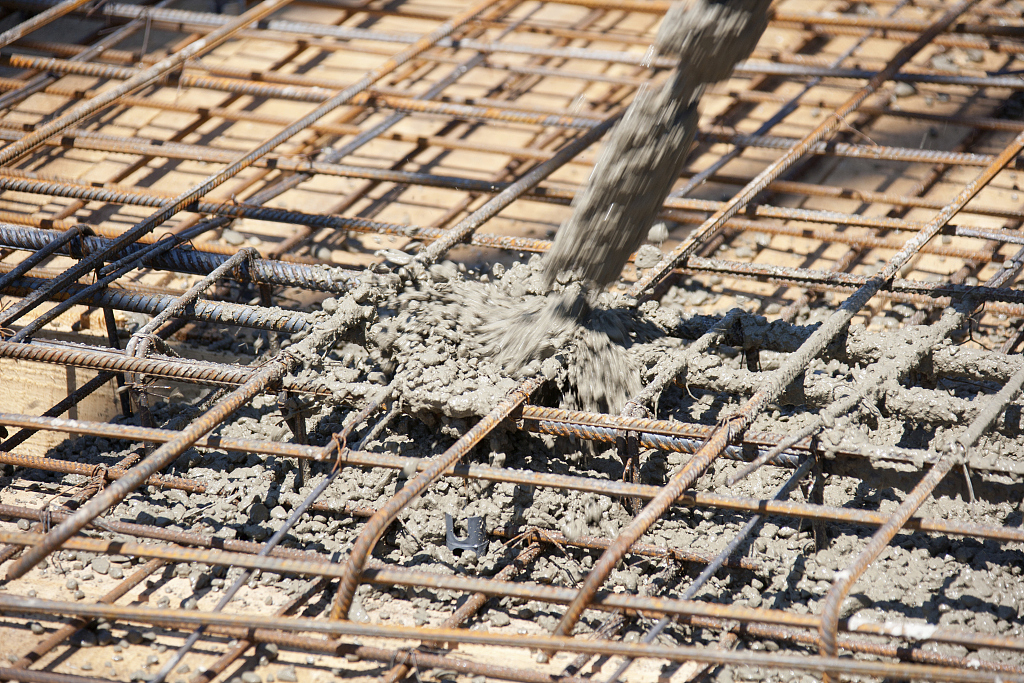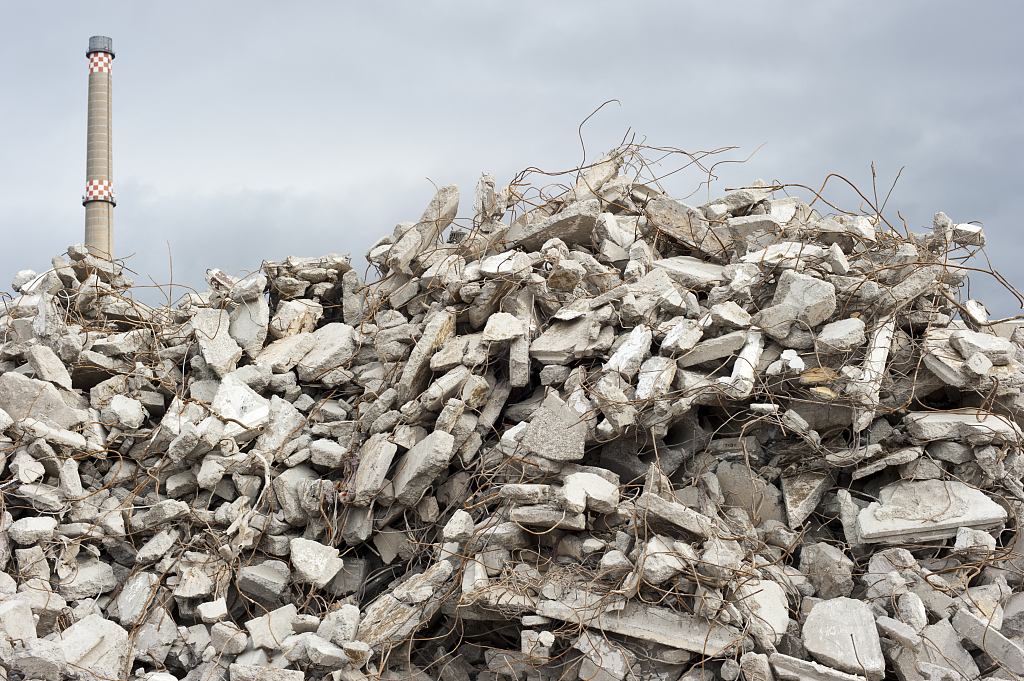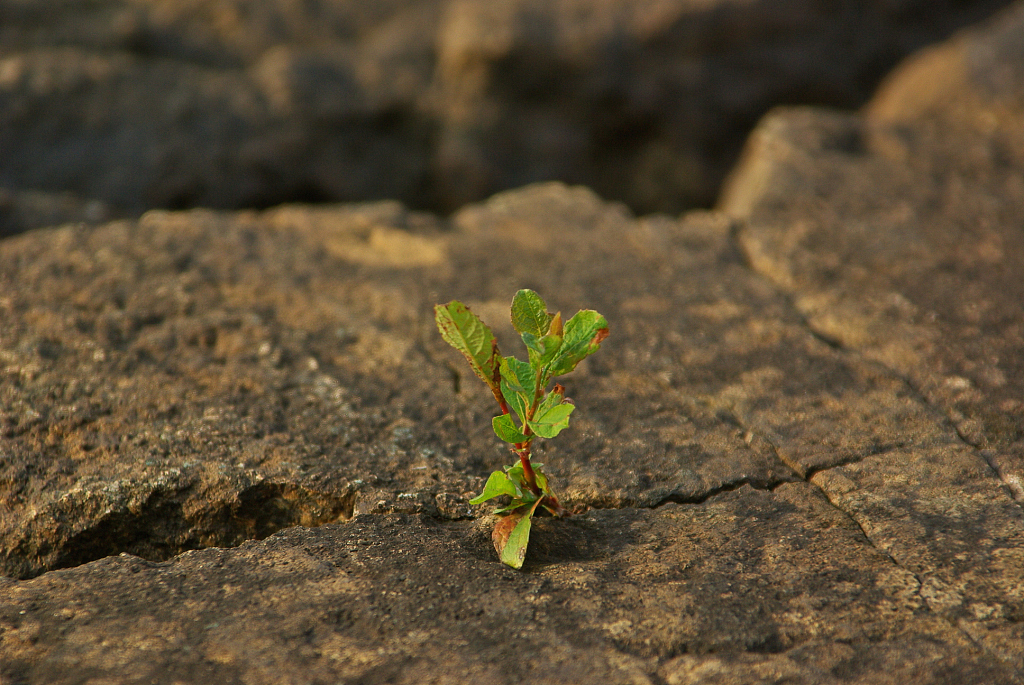
Soon, Jamal's voice will no longer ring out over the mountain slopes he's roamed for years with his herd in northern Cyprus.
To feed the concrete demands of hotels, holiday homes and road-building, quarries are eating away at the mountains where his goats graze.
"I will have to leave because I don’t have a future here," said the 55-year-old herder and lover of poetry.
From Cyprus to New Zealand, Lebanon and beyond, environmentalists worry about the proliferation of quarries in a world ever more greedy for concrete.
Between 40 billion and 50 billion tonnes a year of sand and gravel are extracted around the world from mountains, rivers, coastlines and marine environments, the majority for construction, according to UN environment agency figures.
Concrete consumption has tripled over the past 20 years and with the global population expected to grow by two billion by 2050, demand can only go up, the UN says.
But the extraction process often comes with deforestation, air pollution and disruption of traditional human activities.
Near the hut where Jamal makes traditional "hellim" cheese, trucks come to collect rock, kicking up clouds of dust and frightening the animals.
On the quarried area of the mountain slope, vegetation has disappeared.
A policeman asks the goat herder to stay back as an explosion triggers a huge cloud of smoke and part of the rock face collapses.

Concrete consumption has tripled over the past 20 years and with the global population expected to grow by two billion by 2050, demand can only go up, the UN says. /VCG Photo
No other choice
On another mountain, Jamal was injured and lost animals to quarrying work. Rocks "rained down on us," he said.
While he understands the "need for rock to build", he hopes the company running the site will help him find quieter pastures.
"Today, the island is fed by tourism so we need hotels, guest houses, roads and airports. We don’t have any other choice than to exploit the quarries," Cenk Sarper, head of the Stone Quarries Union, told AFP.
He said the quarries operate in areas far from residential zones "where there are no trees or animals".

Environmentalists worry about the proliferation of quarries in a world ever more greedy for concrete. /VCG Photo
Around the world
Calls for stricter controls resound around the world.
In Lebanon, where illegal quarries have cleared entire mountains and hundreds of thousands of trees, activists are pushing back, despite death threats.
In the South Island of New Zealand, a 170-hectare (420-acre) quarry project near the town of Templeton has sparked outcry over the potential health risks of silica dust.

When can we achieve the balance of nature and human society? /VCG Photo
Enormous waste
But environmental advocates, experts and quarry operators agree on one point: consumers bear some responsibility.
"On the one hand, people talk about the environment, on the other hand they say 'we want roads, we want houses, we want villas with pools', but where will the material needed come from?" asked Sarper, lamenting what he called "hypocrisy".
For Pascal Peduzzi, director of the UN Environment Global Resource Information Database in Geneva, "there is enormous waste – we are not at all in a position of sustainable development".
His organisation advocates maintaining existing buildings and "avoiding surplus construction... for speculation or prestige."
He said the alternative was a proliferation of ghost estates like those left behind in Ireland, Spain and Cyprus when boom turned to bust.
But in northern Cyprus, construction goes on.
An airport expansion is underway to welcome more than five million travelers per year. On the eastern coast near Famagusta, a hotel with 2,500 rooms and thousands of apartments is sprouting up. Outside the summer months, it will be empty, residents say.
Advertisements in Russian and English vaunt it as a "place of peace and happiness". The billboards leave Jamal with a bitter taste.
(Cover image via VCG)
(If you want to contribute and have specific expertise, please contact us at nature@cgtn.com.)

Copyright © 2018 CGTN. Beijing ICP prepared NO.16065310-3
Copyright © 2018 CGTN. Beijing ICP prepared NO.16065310-3